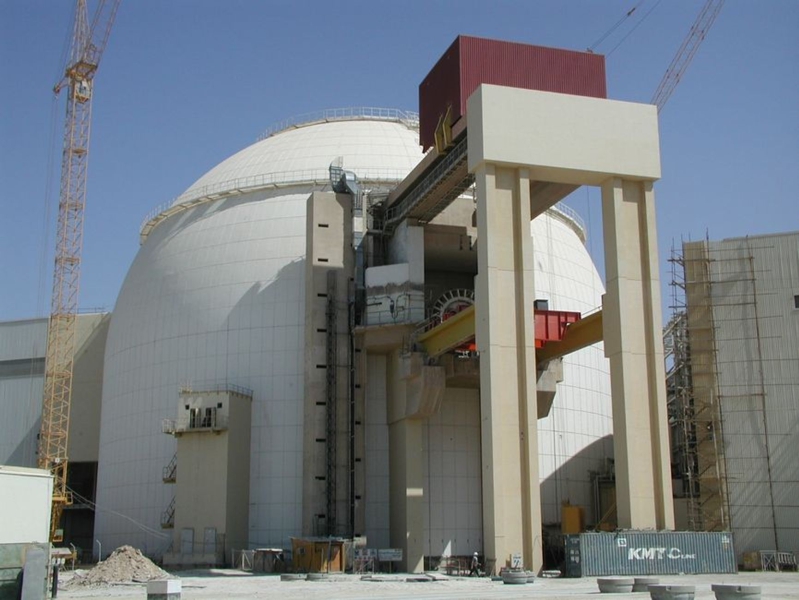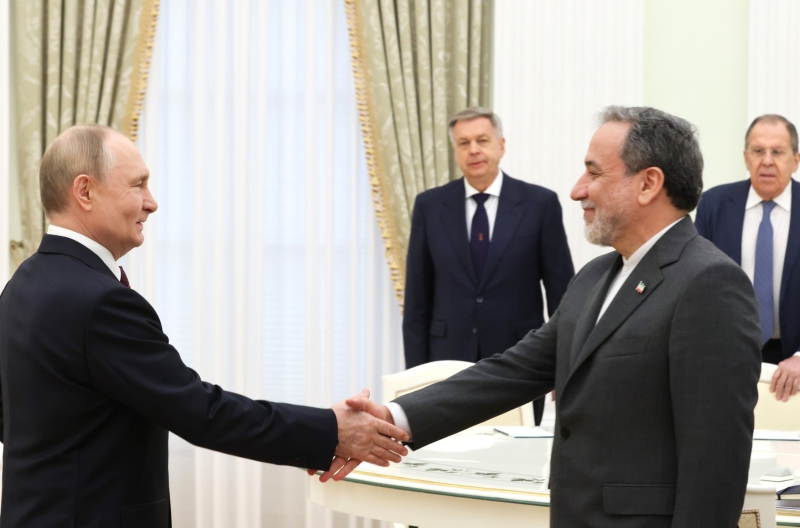The most intense phase of the Iran–Israel war appears to be over. Two weeks on, it has become clear that, despite a high-profile meeting with Iranian Foreign Minister Abbas Araghchi, Moscow effectively distanced itself from the conflict. Putin was reluctant to offer Iran military support — a move that would have run the risk of further worsening Russian relations with both Israel and the United States — but he simultaneously sought to maintain joint projects with Tehran. In the end, Moscow settled for a few official meetings and ambiguous remarks from Dmitry Medvedev, who was promptly and sharply rebuked by Trump.
No obligation to help
Throughout the brief but intense war between Iran and its Western adversaries, Russia’s response remained restrained. Immediately after the first Israeli strikes on Iranian territory, the Russian Foreign Ministry issued a routine condemnation of Jerusalem’s actions, but also reminded Tehran that negotiations with Washington were still an option. There was no mention of a “right to self-defense.” In effect, Moscow was urging Iran to seek compromise rather than fighting to the bitter end.
In any case, Russia had no real levers of influence. Military initiative rested entirely with Israel, and Russia, like many other states in such situations, could only call for de-escalation while evacuating its citizens from Iranian territory.
Putin’s statement before his meeting with the Iranian foreign minister struck a similar tone. He pointed out that the recently signed strategic agreement between Russia and Iran contained “no provisions related to the defense sphere.”
In other words, Russia was under no obligation to enter the war on Iran’s side. What’s more, Putin subtly suggested that Tehran was partly to blame for the shortcomings of its air defense network. “We once offered our Iranian friends cooperation on air defense,” he said. “Our partners didn’t show much interest at the time.” He did not specify when exactly Russia had made that offer, nor what its specific provisions might have entailed.
In the recent strategic agreement between Iran and Russia, “there are no provisions related to the defense sphere,” Putin stated
Still, Putin’s remarks contained clear signs that he was uncomfortable with what was happening regarding Iran, flatly refusing to even discuss the possibility of Israel assassinating Iran’s Supreme Leader, Ali Khamenei. Putin also remarked that Tehran had not yet asked Moscow for military assistance — a comment that, in theory, left the door open for a shift in Russia’s position should such a request be made.
Putin clearly preferred to stick to the line taken by the Russian Foreign Ministry, referencing his own diplomatic service’s statement at the beginning of his meeting with Iranian Foreign Minister Abbas Araghchi in the Kremlin. Despite media reports that Araghchi had brought with him a personal letter from Ayatollah Khamenei urging the Kremlin to take a more active role, Putin offered his partners in Tehran little more than words.
Unreliable investments
All in all, the situation around Iran poses serious long-term risks for Russia. Since 2022, Moscow has invested significant resources in developing its ties with Tehran. Just before Israel’s strikes began, the Iranian ambassador to Russia revealed that in 2024 Moscow had become the Islamic Republic’s largest foreign investor — though he did not specify the scale of those investments. The year before, Russia had invested $2.7 billion in Iran’s economy and pledged another $8 billion specifically for oil and gas projects.
Russia also operates a nuclear power plant in Bushehr, where construction is underway on a second unit. In addition, Moscow is building the Sirik thermal power station in Hormozgan Province. The Russian oil company ZN Vostok is also active in Iran. On top of that, there are large-scale infrastructure plans in the works, including the construction of the Rasht–Astara railway and a proposed gas pipeline from Russia to Iran via Azerbaijan. All of these initiatives are now at risk — even more so if the war drags on or if a new regime comes to power in the Islamic Republic.

Iran, for its part, had been a reliable partner — one that, due to sanctions and international isolation, was effectively compelled to deepen its relationship with Russia. The volume of trade between the two countries couldn’t compare, for instance, to Russian–Turkish trade, but cooperation extended to integration efforts like linking payment systems and establishing a free trade zone with the Eurasian Economic Union. It also included large-scale infrastructure initiatives, such as the North–South Transport Corridor.
However, the risk of the Iranian regime collapsing or fracturing — especially following the recent overthrow of Bashar al-Assad in Syria — has cast doubt on Russia’s entire Middle East strategy. Damascus had served as Moscow’s key entry point into the region, and Russia’s military presence in Syria enabled logistics across the Middle East and beyond while also reinforcing its image as a regional superpower.
Now, with Syria’s leadership replaced by hostile Islamists, all Russian investments in that country have effectively been buried in the sand, and the future of its military bases is increasingly uncertain. If Tehran were to follow Damascus down the same path, it would deal a deeply painful blow not only to Moscow’s position in the Middle East, but to its global influence on the whole.
If Tehran follows the path of Damascus, it will greatly constrain Moscow’s ambitions
Great powers do not passively watch as their allies and partners are eliminated one by one. If the war between Iran and its Western adversaries drags on, it is conceivable that some in Russia’s ruling class might begin to push for intervention to prevent the Tehran regime’s complete collapse. Such sentiments likely grew stronger after the U.S. strike on Iran’s nuclear facilities, as Washington’s entry into the conflict — even if only for a few days — turned it into a global war. America’s bunker-busting strikes led many in Russian patriotic circles to a logical conclusion: Russia could be next.
Could the Kremlin step in?
In the short term, the Middle East war is beneficial for Moscow. Oil prices are rising, and the more dangerous the conflict becomes, the higher they’re likely to climb. This boosts Russia’s budget revenues and potentially eliminates a competitor, as both Iran and Russia were supplying hydrocarbons to China.
Second, the West has temporarily shifted its attention from Ukraine to the Middle East. Even now, there remains a real possibility that the exchanges of fire between Iran and Israel could evolve into a permanent, episodic standoff that would paralyze the entire region. In that case, Israel would need additional military support from the U.S. — and it is clear that, if forced to choose, Trump would always prioritize Israel over Ukraine. Moreover, the U.S.–Israeli actions have already been seized upon by Moscow to rhetorically justify its aggression against Ukraine — If they’re allowed to do it, why can’t we?
The more dangerous the conflict becomes, the higher oil prices are likely to climb — directly benefiting Moscow
In other words, Russia’s decision to stay out of the conflict brought it at least some short-term benefits, even though it risked losing the money and effort already invested in Iran. But there is another dimension at play. The threat of losing its status as a key player in the Middle East — and the fear of being next in line for “regime change” — could have shifted the Kremlin’s approach from pragmatic to more ideological. An idea may have gradually taken root: that Russia could intervene directly, even militarily, to prevent Israel and the U.S. from pushing the war to its logical conclusion — the dismantling of the ayatollahs’ regime.
Such intervention, however, could only have been direct. Deliveries of weapons systems like the Su-35 fighter jet would have made little difference under current conditions, as the two squadrons promised to Tehran wouldn’t have tipped the balance of power. They would not have survived against hundreds of Israeli aircraft, and the outcome of the ongoing strikes would have remained exactly the same.
Moreover, arms shipments to Iran faced strong opposition not only from the Gulf states and Turkey, but within Russia itself. Domestic demand for military hardware surged sharply due to the war in Ukraine, which is precisely why the Su-35s never made it to Iran (even if training aircraft, specifically the Yak-130, did eventually arrive). The situation was much the same when it came to air defense systems.
The Russian Su-35s never made it to Iran
Moscow’s reasoning is clear: at this point, supplying Iran with advanced weapons is futile, as there is no use throwing punches after the fight is over. In addition, Iranian forces would need to undergo months of training before they would be prepared to effectively use aircraft and air defense systems, and during that time, Israel would almost certainly destroy the equipment, paying little heed to who provided it.
Nevertheless, prior to the start of the strikes, there remained a small but real risk of direct Russian intervention — perhaps even something in the spirit of Dmitry Medvedev’s cryptic warning that some unnamed country might supply Iran with nuclear weapons that it could use for self-defense. Israel and the United States might well have hesitated to confront a nuclear power, and by hinting at its potential involvement, Moscow could have positioned itself as a dealmaker — one intent on keeping the Iranian regime remained intact while providing Israel and the U.S. guarantees that Tehran’s nuclear program would be dismantled for good. That, in turn, could have eased Russia’s own fear of becoming the next target.
But it didn’t happen. Moscow held back and waited for the war to end, taking minimal risks and avoiding direct involvement. The Kremlin claims that everything ended just as it had proposed — with a ceasefire. For now at least, Moscow shows no signs that it is preparing to involve itself in yet another conflict.

